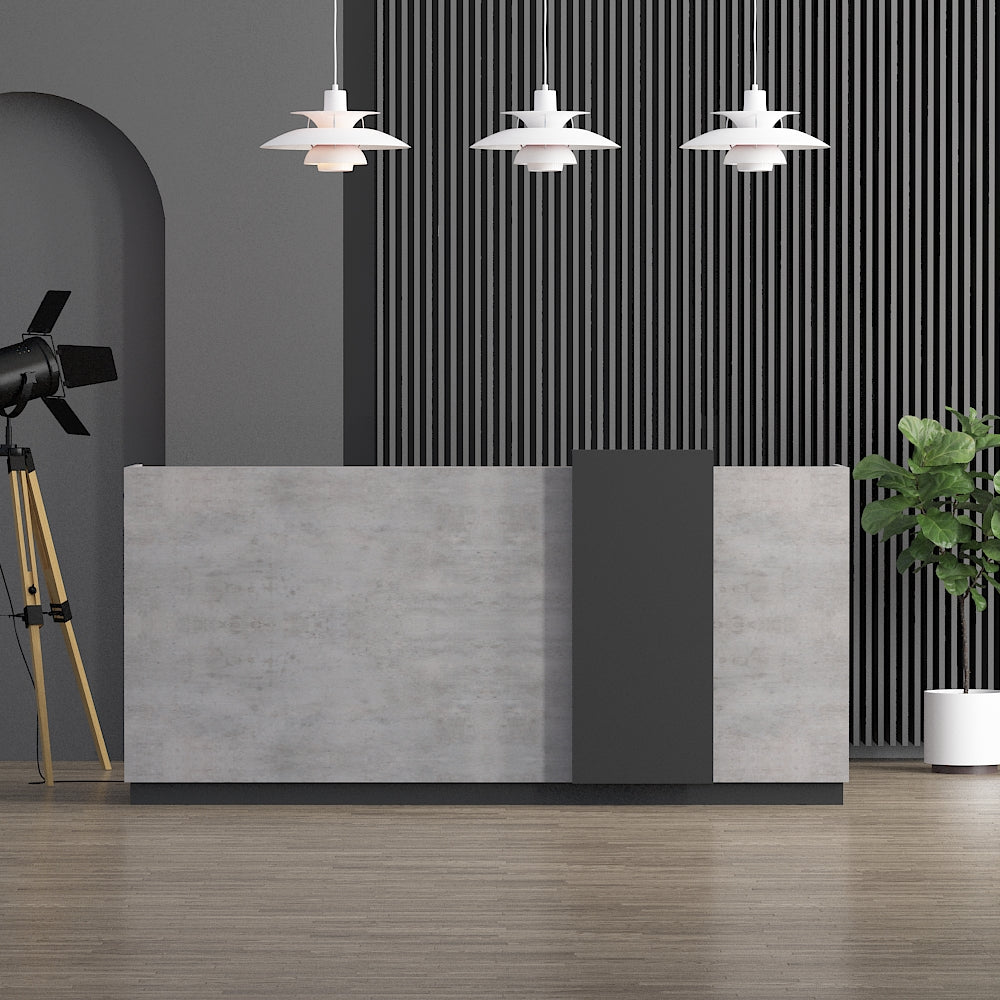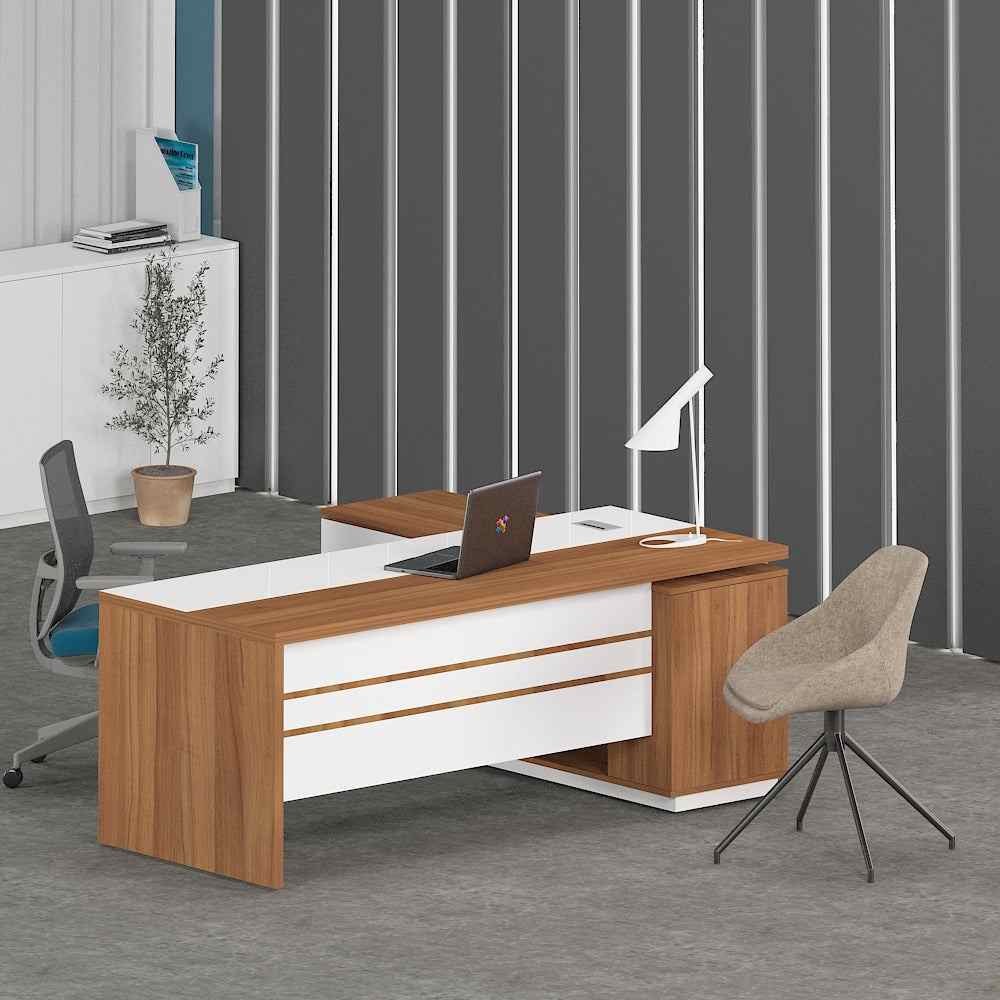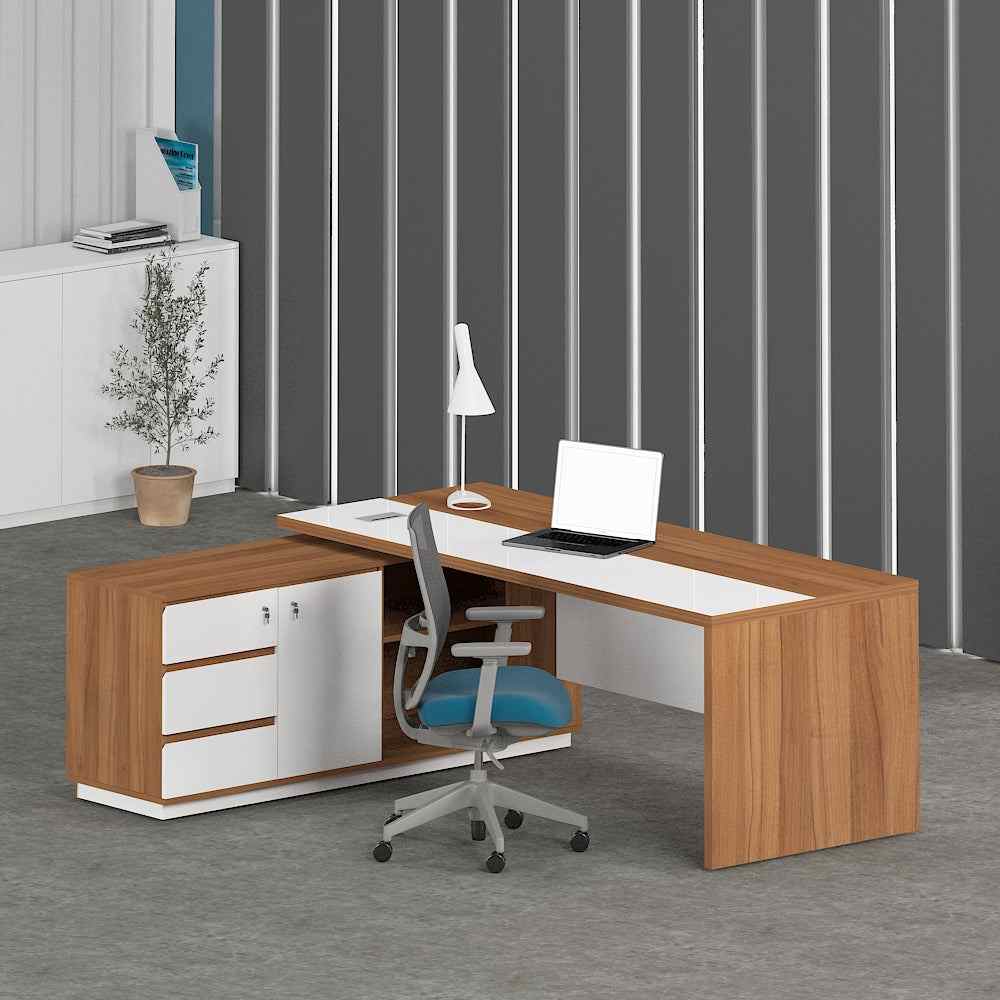The Influence of Middle Eastern Design on Dubai’s Office Furniture
Introduction
Understanding Middle Eastern Design Influence
Dubai, with its vibrant and multicultural atmosphere, draws inspiration from various cultural influences, including the rich heritage of Middle Eastern design. In recent years, this influence has become increasingly prevalent in the city's office furniture landscape, shaping trends and redefining workspace aesthetics.
Dubai's Office Furniture Landscape
Trends and Preferences
Dubai's office furniture market is dynamic and diverse, catering to a wide range of tastes and preferences. While contemporary designs remain popular, there has been a noticeable shift towards incorporating elements of Middle Eastern design, reflecting the city's cultural mosaic and embracing its heritage.
Embracing Diversity
One of Dubai's defining characteristics is its cultural diversity, with residents hailing from all corners of the globe. This diversity is reflected in the city's office spaces, where a fusion of styles and influences creates unique and inspiring work environments that celebrate multiculturalism.
Middle Eastern Aesthetics in Office Furniture
Incorporating Cultural Elements
Middle Eastern design is characterized by its opulence, intricacy, and attention to detail. In Dubai's office furniture, this influence is evident in the use of luxurious materials such as marble, brass, and intricate wood carvings, as well as in the incorporation of traditional motifs and patterns.
Luxurious Materials and Finishes
Dubai's corporate interiors often exude an air of sophistication and elegance, thanks to the use of premium materials and finishes inspired by Middle Eastern design. From ornate brass fixtures to sumptuous leather upholstery, every detail is meticulously crafted to create an atmosphere of luxury and refinement.
Dubai Workspace Design Inspiration
Fusion of Modern and Traditional
Dubai's office spaces strike a delicate balance between modernity and tradition, blending sleek, contemporary aesthetics with timeless Middle Eastern elements. This fusion of styles creates a unique sense of place, where employees feel inspired and connected to their surroundings.
Creating Unique Work Environments
By drawing inspiration from Middle Eastern design, Dubai's office furniture manufacturers and designers have unlocked new possibilities for creativity and innovation. From statement-making reception areas to intimate meeting rooms adorned with intricate arabesque patterns, each workspace tells a story and invites exploration.
Impact on Corporate Interiors
Reflecting Prestige and Elegance
In Dubai's competitive business landscape, image is everything. By incorporating elements of Middle Eastern design into their corporate interiors, businesses convey a sense of prestige, elegance, and cultural authenticity that resonates with clients, partners, and employees alike.
Enhancing Brand Identity
Office furniture plays a crucial role in shaping brand identity and corporate culture. By infusing their workspace with Middle Eastern aesthetics, companies in Dubai can differentiate themselves from competitors, showcase their commitment to diversity, and create a memorable and immersive brand experience.
Meeting Functional Needs
Balancing Style and Functionality
While aesthetics are important, office furniture must also meet functional needs and support productivity. In Dubai, where long working hours are common, ergonomic considerations are paramount. Middle Eastern-inspired furniture designs prioritize comfort, functionality, and practicality without compromising on style or elegance.
Ergonomic Considerations
From adjustable desks to ergonomic chairs, Dubai's office furniture manufacturers offer a wide range of options designed to promote employee health and well-being. By prioritizing ergonomic features such as lumbar support, adjustable height settings, and breathable materials, businesses can create a comfortable and conducive work environment that enhances productivity and reduces absenteeism.
Sustainability and Innovation
Environmental Consciousness
In line with global trends towards sustainability, Dubai's office furniture industry is increasingly embracing eco-friendly materials and practices. Middle Eastern-inspired designs often incorporate natural materials such as wood, stone, and recycled metals, reflecting a commitment to environmental stewardship and responsible manufacturing.
Tech Integration
As a hub for innovation and technology, Dubai's office furniture incorporates cutting-edge features and smart solutions to meet the needs of modern businesses. From integrated charging stations to adjustable lighting systems, these innovations enhance functionality, connectivity, and user experience, while seamlessly complementing Middle Eastern design aesthetics.
Case Studies: Successful Implementations
Real-life Examples
Several businesses in Dubai have successfully integrated Middle Eastern design elements into their office spaces, creating environments that reflect their brand identity, values, and cultural heritage. From multinational corporations to boutique startups, these case studies highlight the versatility and adaptability of Middle Eastern-inspired office furniture.
Lessons Learned
By studying these case studies, businesses in Dubai can gain valuable insights into the impact of Middle Eastern design on workspace aesthetics, employee satisfaction, and brand perception. Whether it's incorporating traditional motifs, experimenting with luxurious materials, or embracing sustainability, the key takeaway is that thoughtful design choices can elevate the workplace experience and drive business success.
Challenges and Considerations
Cultural Sensitivity
While Middle Eastern design offers abundant opportunities for creativity and expression, businesses must approach its integration with cultural sensitivity and respect. Understanding the cultural significance of certain motifs, symbols, and materials is essential to avoid inadvertently causing offense or misrepresentation.
Logistical Constraints
Logistical considerations such as sourcing materials, managing production timelines, and navigating regulatory requirements can present challenges when incorporating Middle Eastern design elements into office furniture. Partnering with experienced suppliers and manufacturers who understand the local market and cultural nuances is crucial to overcoming these challenges and ensuring successful implementation.
Future Outlook: Evolving Trends
Adapting to Changing Preferences
As Dubai continues to evolve and grow, so too will its office furniture landscape. While Middle Eastern design will undoubtedly remain a prominent influence, future trends may see a greater emphasis on sustainability, innovation, and customization, as businesses seek to create unique and personalized work environments that reflect their values and aspirations.
Pushing Boundaries
Innovation and creativity know no bounds, and Dubai's office furniture industry is poised to push the boundaries of design, functionality, and sustainability. By embracing emerging technologies, experimenting with new materials, and challenging traditional notions of workspace design, businesses can stay ahead of the curve and continue to inspire and delight employees and clients alike.
Conclusion: Infusing Dubai’s Office Spaces with Middle Eastern Elegance
Embracing Diversity for Inspired Workspaces
The influence of Middle Eastern design on Dubai's office furniture landscape is undeniable, enriching the city's corporate interiors with a sense of heritage, sophistication, and cultural authenticity. By incorporating elements of Middle Eastern aesthetics into their workspace design, businesses can create environments that reflect their brand identity, foster employee well-being, and leave a lasting impression on clients and visitors. As Dubai continues to thrive as a global business hub, the fusion of modernity and tradition will continue to shape its office furniture trends, ensuring that each workspace tells a unique and compelling story of innovation, creativity, and cultural diversity.
FAQs
1. How does Middle Eastern design influence Dubai's office furniture trends?
Middle Eastern design influences Dubai's office furniture trends by incorporating elements such as luxurious materials, intricate patterns, and cultural motifs, creating environments that reflect the city's rich heritage and cultural diversity.
2. What are some common features of Middle Eastern-inspired office furniture?
Middle Eastern-inspired office furniture often features luxurious materials such as marble, brass, and wood, as well as intricate patterns, ornate detailing, and traditional motifs that reflect the region's cultural heritage and aesthetic sensibilities.
3. How can businesses in Dubai integrate Middle Eastern design into their office spaces?
Businesses in Dubai can integrate Middle Eastern design into their office spaces by incorporating elements such as traditional motifs, luxurious materials, and cultural references into their furniture selection, layout, and décor, creating environments that reflect their brand identity and cultural values.
4. What are some challenges businesses may face when incorporating Middle Eastern design into their office furniture?
Some challenges businesses may face when incorporating Middle Eastern design into their office furniture include sourcing authentic materials, navigating cultural sensitivities, and managing logistical constraints such as production timelines and regulatory requirements.
5. How can businesses stay ahead of evolving office furniture trends in Dubai?
To stay ahead of evolving office furniture trends in Dubai, businesses can stay informed about emerging technologies, materials, and design innovations, collaborate with experienced suppliers and designers, and regularly assess their workspace needs and preferences to ensure that their office furniture reflects the latest trends and best practices.












































